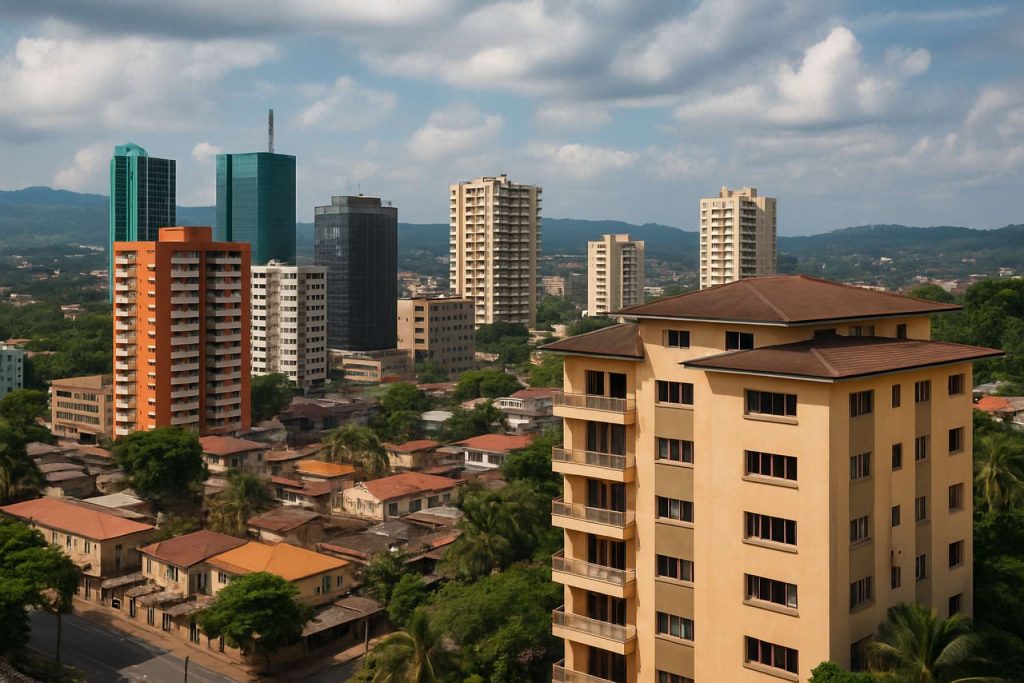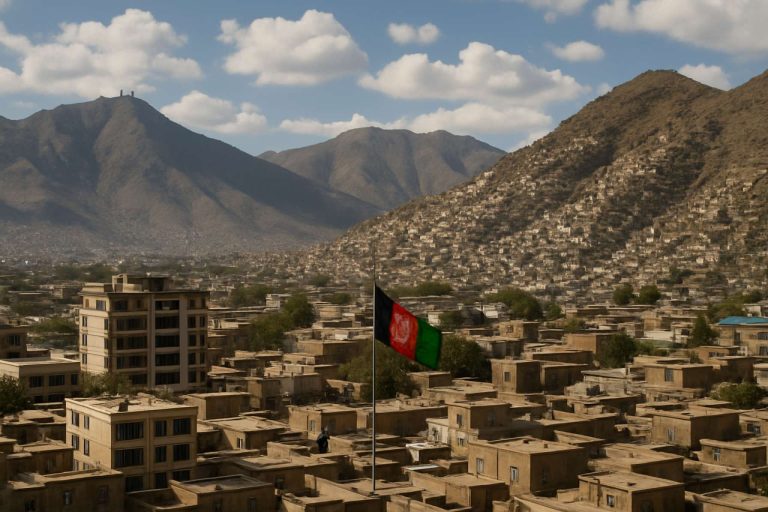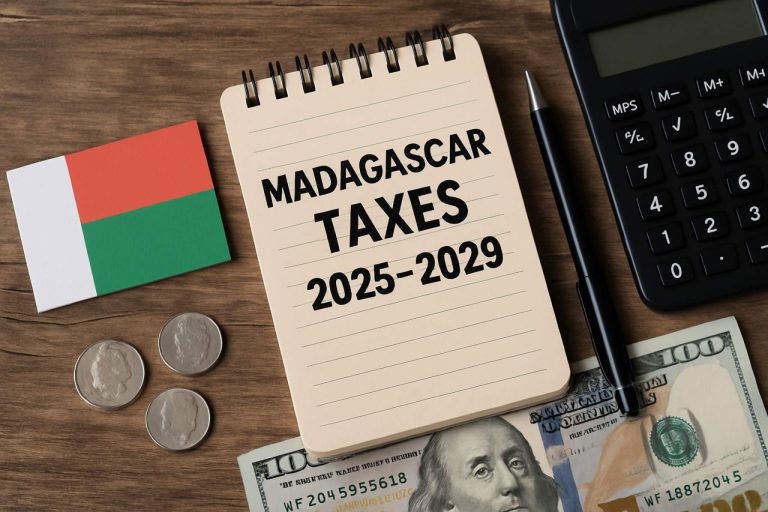
Table of Contents
- Executive Summary: Cameroon Real Estate in 2025 and Beyond
- Key Market Statistics: Growth, Prices, and Volume
- Residential Property Trends: Urbanization and Demand Drivers
- Commercial Real Estate: Office, Retail, and Industrial Spaces
- Land Acquisition and Ownership Laws: Legal Framework and Compliance
- Taxation, Fees, and Regulatory Considerations in Cameroon Real Estate
- Government Initiatives and Urban Development Projects
- Challenges: Infrastructure, Financing, and Market Transparency
- Investment Opportunities and Emerging Hotspots (2025–2029)
- Future Outlook: Forecasts, Risks, and Strategic Recommendations
- Sources & References
Executive Summary: Cameroon Real Estate in 2025 and Beyond
The real estate sector in Cameroon is positioned for moderate growth in 2025, driven by urbanization, public investment in infrastructure, and legal reforms aimed at improving the business climate. The country’s real estate market encompasses residential, commercial, and industrial properties, with a particular concentration in major cities such as Yaoundé and Douala. Despite ongoing challenges, including land tenure complexities and compliance hurdles, the sector remains a key contributor to national development and employment.
Recent developments in land and property law have sought to clarify and streamline the process of land acquisition and registration. The Ministry of Housing and Urban Development has introduced digitalization initiatives to reduce bureaucracy and combat corruption in the issuance of land titles. These reforms are expected to enhance transparency and promote formal investment, particularly in affordable housing and commercial projects, which are priorities under the government’s 2020–2030 National Development Strategy (Ministry of the Economy, Planning and Regional Development).
Key events shaping the sector include the expansion of the Cameroon Real Estate Corporation’s social housing programs and the growing participation of domestic banks in mortgage finance, supported by the Banque de l'Habitat du Cameroun. In 2024, the government allocated over CFA 20 billion to social housing, reflecting a commitment to address the estimated deficit of over 2 million housing units (Ministry of Housing and Urban Development). Commercial real estate, meanwhile, is benefiting from infrastructure projects such as the Douala Grand Mall and new logistics hubs, which are designed to capitalize on Cameroon’s role as a regional trade gateway.
Compliance remains a critical issue. Investors must adhere to the 1974 Land Tenure Ordinance, which governs land ownership and transfers, as well as urban planning codes and tax regulations administered by the General Directorate of Taxation. Ongoing reforms aim to reduce the time required for property registration and construction permits (Ministry of Housing and Urban Development).
Looking ahead, the outlook for Cameroon’s real estate market is cautiously optimistic. Continued legal reforms, infrastructure investment, and urban growth are expected to sustain demand, though risks include persistent land disputes and macroeconomic pressures. The government’s strategic focus on affordable housing and public-private partnerships is likely to shape the sector’s trajectory through 2030.
Key Market Statistics: Growth, Prices, and Volume
The real estate sector in Cameroon continues to experience dynamic shifts as the nation progresses through 2025. Current statistics reveal a steady growth trajectory, driven by urbanization, population expansion, and infrastructure projects. The National Institute of Statistics estimates that Cameroon’s urban population surpassed 60% in 2024, intensifying demand for residential and commercial properties, particularly in Douala and Yaoundé. According to data from the Institut National de la Statistique, the construction sector contributed around 5.8% to the country’s GDP in 2023, with projections indicating a moderate annual increase of approximately 4-5% through 2026.
Real estate prices in primary urban centers have seen incremental appreciation. The World Bank reports that residential property prices in Douala and Yaoundé rose by an estimated 7% in 2024, with premium locations experiencing even higher rates due to limited land supply and heightened investor interest. Meanwhile, rental yields remain robust, averaging between 6% and 9% for residential units in major metropolitan areas.
Transaction volumes have exhibited resilience despite global economic headwinds. The Ministry of Housing and Urban Development records indicate that over 18,000 property transactions were registered nationwide in 2024, marking a 9% year-on-year increase. This uptick is attributed to policy reforms streamlining land registration and titling processes, aimed at reducing administrative bottlenecks and enhancing market transparency.
The government’s commitment to affordable housing is also evident in ongoing public-private partnerships. Through the National Housing Programme, more than 4,000 new housing units are scheduled for completion by the end of 2025, targeting low- and middle-income households. This initiative is monitored and regulated directly by the Ministry of Housing and Urban Development to ensure compliance with national urban planning standards.
Looking ahead, the real estate outlook remains positive but faces challenges such as land tenure complexity, informal market practices, and financing constraints. Regulatory reforms, digitalization of land registries, and the expansion of mortgage lending—supported by the Bank of Central African States (BEAC)—are expected to bolster investor confidence and facilitate further growth through 2027.
Residential Property Trends: Urbanization and Demand Drivers
Urbanization continues to be a principal driver of residential real estate trends in Cameroon, as the country’s urban population expands steadily. According to official data, the urbanization rate in Cameroon is projected to exceed 60% by 2025, fueled by rural-to-urban migration and natural population growth in major cities such as Yaoundé and Douala. This demographic shift is creating sustained demand for residential properties, particularly in the affordable and middle-income segments.
The government, recognizing the housing deficit estimated at over 2 million units, has intensified efforts to stimulate investment in the sector. Initiatives include public-private partnerships for mass housing development and the implementation of the National Housing Policy. Notably, the Ministry of Housing and Urban Development oversees several ongoing projects aimed at expanding access to decent housing, with a focus on urban centers.
From a legal and compliance perspective, the Land Tenure Ordinance and the 2013 Law on Urban Planning and Construction set the regulatory framework for property ownership, development, and land use. Compliance with environmental and urban planning regulations is increasingly enforced, as local authorities seek to manage urban sprawl and prevent irregular settlements. The Ministry of State Property, Surveys and Land Tenure oversees land registration processes, which are gradually being digitized to improve transparency and reduce fraud.
Key statistics illustrate the rising demand: housing loan portfolios held by major banks have registered double-digit growth since 2022, and building permit issuances in Douala and Yaoundé have increased by more than 12% year-on-year, as reported in recent sector reviews by government agencies. The Bank of Central African States (BEAC) notes a steady increase in mortgage financing, although access remains largely limited to middle- and high-income households due to stringent lending criteria.
Looking ahead, residential property demand is expected to remain robust through 2025 and beyond, underpinned by ongoing urbanization, a youthful population, and government commitment to infrastructure upgrades. However, challenges persist, including land title insecurity, high construction costs, and gaps in affordable housing supply. Reforms aimed at streamlining land registration and scaling up public-private partnerships are anticipated to accelerate, shaping the residential real estate landscape in the near term.
Commercial Real Estate: Office, Retail, and Industrial Spaces
The commercial real estate sector in Cameroon—comprising office, retail, and industrial spaces—continues to evolve in response to macroeconomic trends, regulatory reforms, and demographic changes anticipated in 2025 and the coming years. The market is primarily concentrated in urban centers such as Douala and Yaoundé, which serve as economic and administrative hubs.
Key Statistics and Market Trends
According to the Ministry of Economy, Planning and Regional Development, Cameroon’s urban population is projected to grow at over 3.5% annually, increasing demand for commercial spaces. As of late 2024, Douala and Yaoundé collectively accounted for over 60% of new office and retail developments, with industrial parks emerging along key transport corridors. The government’s Vision 2035 economic plan continues to prioritize infrastructure, logistics, and industrial diversification, further stimulating demand for modern commercial real estate assets.
Legal and Compliance Framework
The legal environment for commercial real estate is governed by the Ministry of Housing and Urban Development and the Ministry of State Property, Surveys and Land Tenure. The Land Tenure Ordinance No. 74-1 of 1974 remains the foundational statute, establishing procedures for acquiring, leasing, and transferring commercial property. Recent reforms have focused on digitizing property registries and streamlining land title issuance to reduce fraud and improve investor confidence.
To operate in the commercial real estate sector, developers and investors must comply with zoning regulations, environmental assessments, and urban planning codes, as detailed by the Ministry of Housing and Urban Development. Taxation is regulated by the General Directorate of Taxes, which has introduced incentives for industrial park developers under the government’s industrialization drive.
Recent Events and Outlook
Recent years have seen flagship projects such as the Douala Grand Mall and the Yaoundé Industrial Park, reflecting increased foreign and domestic investment. However, challenges persist, including land disputes, bureaucratic bottlenecks, and infrastructure deficits. Ongoing initiatives—including the expansion of the national cadastre and rollout of e-governance tools—are expected to enhance transparency and reduce transaction times in the near future, according to the Ministry of State Property, Surveys and Land Tenure.
Looking ahead to 2025 and beyond, the outlook for commercial real estate in Cameroon is cautiously optimistic. Demand for Grade A office and retail space is projected to remain robust, especially in sectors linked to agro-industry, logistics, and services. Continued regulatory modernization and infrastructure investment are expected to underpin market growth, though stakeholders should closely monitor evolving compliance requirements and urbanization policies.
Land Acquisition and Ownership Laws: Legal Framework and Compliance
Land acquisition and ownership in Cameroon are governed by a complex legal framework that reflects both statutory and customary law. The principal statutes include Ordinance No. 74-1 of 6 July 1974 on land tenure and Ordinance No. 74-2 of 6 July 1974 on the state land regime. These laws distinguish between national land, private property, and public property, with state oversight prevailing in most transactions. The process of acquiring titled land involves several administrative steps: application for land certificate, verification of occupancy, and publication of a land survey. The land certificate remains the only conclusive evidence of ownership under Cameroonian law, as stipulated by the Ministry of State Property, Surveys and Land Tenure.
Compliance with the formal acquisition process is essential to avoid disputes and ensure legal protection. The government has been actively digitalizing land-related services to improve transparency and efficiency. For instance, the Ministry of State Property, Surveys and Land Tenure has introduced electronic land registration systems in major cities, with further expansion planned through 2025. However, overlapping customary claims and administrative delays remain significant challenges, especially in rural and peri-urban areas where land is often held under traditional tenure systems.
Foreign ownership of land is generally restricted. According to prevailing law, non-Cameroonian individuals and entities may only obtain land through leaseholds rather than outright ownership, except in special cases approved by presidential decree (Ministry of State Property, Surveys and Land Tenure). Investors must also comply with the provisions of the Investment Charter and related sectoral regulations.
Recent years have seen an increase in formal land registration: as of 2023, over 300,000 land certificates had been issued nationwide, with urban areas accounting for the majority (Ministry of State Property, Surveys and Land Tenure). Yet, it is estimated that less than 20% of land in Cameroon is formally titled, indicating substantial scope for regularization and formalization by 2025 and beyond.
Looking forward, the Cameroonian government has set targets to further streamline procedures, reduce corruption risks, and promote secure land tenure as part of its Vision 2035 development agenda (Ministry of Decentralization and Local Development). Initiatives include continued digitization, community sensitization, and legal reforms to harmonize statutory and customary land rights. These reforms are expected to enhance investor confidence and support sustainable real estate development in the coming years.
Taxation, Fees, and Regulatory Considerations in Cameroon Real Estate
The regulatory and tax framework governing real estate in Cameroon is shaped by a combination of national legislation, local ordinances, and evolving government policies. As of 2025, property transactions and ownership are primarily regulated by the Ministry of Housing and Urban Development (MINHDU) in conjunction with the General Directorate of Taxes (DGI). The legal basis for property rights and transactions is established under the Ordinance No. 74-1 of 6 July 1974, which governs land tenure and property registration.
- Property Transfer Taxes and Fees: Real estate transfers in Cameroon are subject to a transfer tax, typically set at 15% of the declared property value, plus various notarial fees and registration duties. Notary fees are calculated on a sliding scale, usually ranging from 1-3% of the transaction value. There are also administrative fees for issuance of land certificates and related documents, which are overseen by the Ministry of Housing and Urban Development.
- Annual Property Taxes: Property owners are liable for annual property taxes, which are assessed at rates varying between 0.1% and 0.5% of the property’s assessed value, depending on location and property use. Tax declarations and payments are managed through the General Directorate of Taxes’ digital platform, which has been expanded for greater compliance and transparency as part of the government’s digitalization agenda for 2025.
- Foreign Ownership and Compliance: The Cameroonian legal regime permits foreign nationals and companies to acquire real estate, though certain restrictions apply to agricultural and public lands. All purchasers must comply with anti-money laundering (AML) and know-your-customer (KYC) regulations as enforced by the Supreme Court and relevant financial authorities. Due diligence and clear title verification are emphasized, with land certificates required for all formal property transfers.
- Key Statistics and Outlook: Real estate transactions have increased in urban centers such as Douala and Yaoundé, with the Ministry of Housing and Urban Development reporting a steady annual growth rate of 4-6% in registered property transactions since 2022. The government’s ongoing land titling and digital registry reform initiatives are expected to further boost transparency, reduce disputes, and streamline compliance procedures through 2025 and beyond.
- Regulatory Developments: In late 2024, updated guidelines on property valuation and land use planning were issued to enhance compliance and curb informal sector activities. These reforms are designed to attract both domestic and foreign investment, in line with national urbanization and housing policy objectives as outlined by the Ministry of Housing and Urban Development.
Looking ahead, increased digitization of land and tax records, coupled with stricter enforcement of compliance measures, is expected to improve regulatory certainty and investor confidence in Cameroon’s real estate sector.
Government Initiatives and Urban Development Projects
The Cameroonian government has prioritized urban development and real estate expansion as central components of its national growth agenda, particularly as urbanization accelerates and the population is projected to surpass 30 million in the coming years. Through multiple ministries and public agencies, Cameroon has launched initiatives to address housing deficits, modernize city infrastructure, and stimulate private sector participation in real estate.
A cornerstone of these efforts is the ongoing implementation of the Project for the Construction of 100,000 Social Housing Units and 150,000 Serviced Plots administered by the Ministry of Housing and Urban Development (MINHDU). Launched in phases, the program aims to alleviate the chronic housing shortfall—estimated at over one million units—by providing affordable homes and prepared land in urban centers such as Yaoundé, Douala, and secondary cities. By 2025, the government reports the delivery of several thousand units and continues to allocate budgetary resources for new construction, land titling, and infrastructure servicing.
Legislative and regulatory reforms have also been enacted to foster investment and transparency in the real estate sector. The government has updated the Urban Planning Law (Law No. 2004/003 of April 21, 2004), which governs zoning, permits, and urban development standards. Complementary decrees have simplified procedures for property registration and introduced digital land management systems, overseen by the Ministry of State Property, Surveys and Land Tenure (MINDCAF). These reforms seek to reduce bureaucratic delays and land disputes, which have historically deterred both domestic and foreign investors.
In the context of major national events, such as the hosting of the 2026 Africa Cup of Nations (AFCON), urban renewal and real estate upgrades have gained momentum. The government is investing in new sports facilities, roads, and hospitality infrastructure, stimulating demand for commercial and residential properties in host cities. Key statistics from the Ministry of Housing and Urban Development indicate that the construction sector contributed over 8% to national GDP in 2023, with projections of steady growth through 2025 as public and private developments accelerate.
Looking forward, government-led urban development is expected to remain robust, with further policies planned to enhance public-private partnerships, expand mortgage finance, and support sustainable city planning. However, challenges—such as informal settlements, land tenure conflicts, and the high cost of construction materials—persist. Continued regulatory modernization and targeted investment will be critical to realizing the government’s ambitious urbanization and housing targets in the years ahead.
Challenges: Infrastructure, Financing, and Market Transparency
The real estate sector in Cameroon faces persistent challenges related to infrastructure deficits, limited financing avenues, and market transparency, all of which are expected to shape its trajectory in 2025 and beyond.
Infrastructure remains a foundational obstacle. Despite ongoing government efforts under initiatives such as the National Development Strategy 2020-2030 (NDS30), many urban and peri-urban areas suffer from inadequate roads, unreliable water supply, and insufficient electricity connectivity. According to the Ministry of Economy, Planning and Regional Development, infrastructure constraints have slowed the pace of new real estate developments, particularly outside major cities such as Douala and Yaoundé. The government’s 2025 objectives include ramping up investment in transport and utilities; however, execution lags due to logistical, financial, and administrative bottlenecks.
Financing constitutes a second major hurdle. The mortgage sector remains underdeveloped, with less than 5% of Cameroonians accessing formal mortgage products, as reported by the Bank of Central African States. High interest rates—routinely exceeding 10%—and stringent collateral requirements exclude a vast segment of the population and small developers from the formal credit market. While state-backed initiatives such as the Credit Foncier du Cameroun (CFC) seek to expand access to housing loans, funding remains insufficient relative to demand, and operational reforms are ongoing to improve disbursement efficiency.
Market Transparency is also a concern. The absence of a centralized land registry and opaque property titling processes contribute to frequent disputes and protracted legal battles. The Ministry of Housing and Urban Development has prioritized digitalization of land records and simplification of transfer procedures through the 2021-2025 Urban Development Plan, but implementation is gradual and often hampered by bureaucratic inertia. Legal compliance is further complicated by inconsistent application of the 1974 Land Tenure Ordinances and evolving municipal regulations, creating uncertainty for investors and developers alike.
Looking ahead, the outlook for real estate in Cameroon remains cautiously optimistic. The government’s commitment to reform and infrastructure upgrades signals positive change, but substantive progress will depend on sustained investment, financial sector innovation, and accelerated regulatory modernization. Achieving greater transparency and expanding financing options are likely to be decisive factors in unlocking the sector’s growth potential through 2025 and the following years.
Investment Opportunities and Emerging Hotspots (2025–2029)
The real estate sector in Cameroon is undergoing notable transformation, with emerging investment opportunities and hotspots poised to shape the landscape from 2025 through 2029. Several macroeconomic and demographic factors are driving this change, including urbanization, population growth, and government reforms aimed at improving the business environment.
According to the Ministry of Economy, Planning and Regional Development, Cameroon’s urban population is projected to surpass 60% by 2030, spurring sustained demand for residential, commercial, and industrial properties. The cities of Douala and Yaoundé continue to attract the majority of real estate investment, but secondary cities such as Bafoussam, Limbe, and Garoua are fast becoming new hotspots due to infrastructure upgrades and decentralization policies.
Legal reforms are also shaping the investment climate. The Land Tenure Ordinance and the 2021 Law on Public-Private Partnerships have introduced clearer frameworks for property registration and large-scale real estate projects. The Ministry of Housing and Urban Development reports that the government is prioritizing affordable housing, with over 10,000 new units planned between 2025 and 2027, offering opportunities for both local and foreign investors under joint venture models.
Compliance remains critical, especially regarding land titling and due diligence. The Ministry of Justice has streamlined the process for obtaining land certificates, though investors must still navigate traditional tenure systems, particularly in peri-urban areas. New digital land registries are being piloted in Yaoundé and Douala to enhance transparency and reduce transaction times.
In terms of statistics, the National Institute of Statistics highlights that real estate and construction contributed approximately 8% to Cameroon’s GDP in 2023, with a projected annual growth rate of 5.5% through 2029. The retail and logistics sectors are experiencing particular growth, fueled by the expansion of trade corridors and e-commerce.
Looking ahead, the outlook remains positive for investors who adhere to compliance requirements and leverage government incentives. Key risks include regulatory uncertainty and disputes over customary land, but ongoing legal reforms and technology-driven transparency measures are expected to mitigate these challenges, making Cameroon’s real estate market increasingly attractive through 2029.
Future Outlook: Forecasts, Risks, and Strategic Recommendations
The outlook for the real estate sector in Cameroon in 2025 is shaped by a complex interplay of demographic trends, regulatory reforms, and macroeconomic factors. Urbanization is accelerating, with the urban population projected to rise above 60% by 2030, intensifying demand for residential and commercial properties. The government continues to prioritize affordable housing and urban infrastructure, reflected in the ongoing implementation of the National Urban Development Plan and the National Housing Development Programme, both spearheaded by the Ministry of Housing and Urban Development.
Legal frameworks remain anchored in the 1974 Land Tenure Ordinances, but recent years have brought incremental reforms aimed at streamlining land registration and enhancing transparency. The Ministry of Justice and the Ministry of Economy, Planning and Regional Development are collaborating to digitize land registries and simplify property transfer processes. This digital transformation is expected to reduce transaction times, mitigate corruption risks, and improve investor confidence. However, risks persist, particularly with complex land rights, customary claims, and lengthy dispute resolution processes, as noted in guidance from the Supreme Court of Cameroon.
Key compliance requirements continue to include land title verification, adherence to zoning and construction codes, and payment of taxes and duties. The General Directorate of Taxes has reinforced tax compliance monitoring, especially regarding capital gains and rental income from real estate assets. Non-compliance can result in fines, property seizures, or litigation. Companies and investors are increasingly seeking due diligence support from registered law firms, as recommended by the Organization for the Harmonization of Business Law in Africa (OHADA).
Statistically, the property market demonstrated resilience in 2023–2024, with construction permits and mortgage lending volumes both rising by approximately 8% year-on-year, according to data from the Bank of Central African States (BEAC). However, inflationary pressures and currency volatility remain challenges for both developers and homebuyers.
Looking ahead to 2025 and beyond, the sector’s growth will hinge on continued regulatory modernization, infrastructure investment, and the resolution of systemic land tenure issues. Strategic recommendations for market participants include:
- Engaging early with local authorities and legal professionals to navigate land rights and compliance requirements.
- Leveraging digital tools for due diligence and property management.
- Monitoring policy updates from the Ministry of Housing and Urban Development and Ministry of Finance to anticipate regulatory changes.
- Structuring investments to mitigate currency and inflation risks.
In summary, the Cameroonian real estate market presents significant opportunities, but demands rigorous compliance, strategic planning, and ongoing monitoring of the evolving legal and economic landscape.



